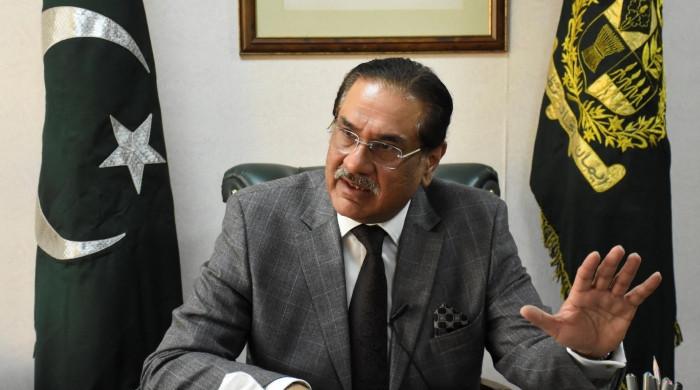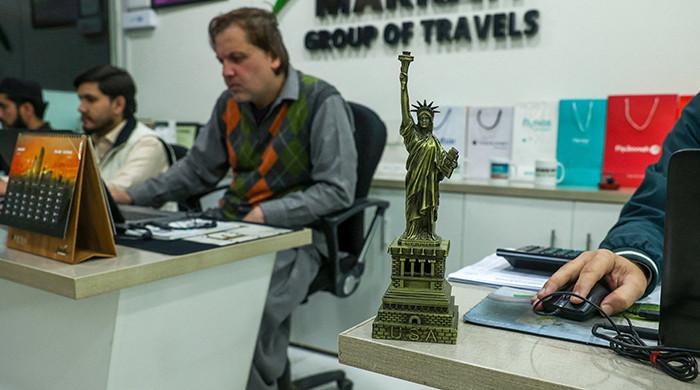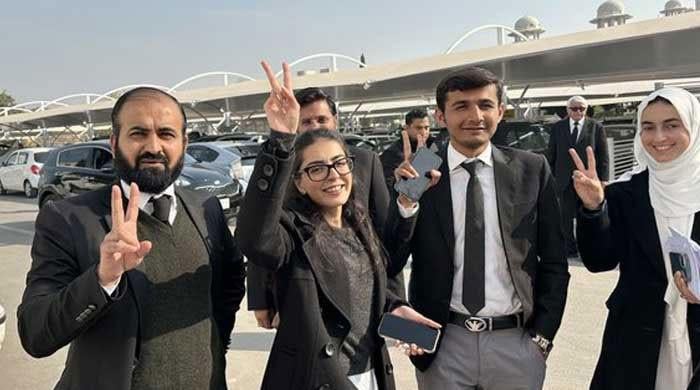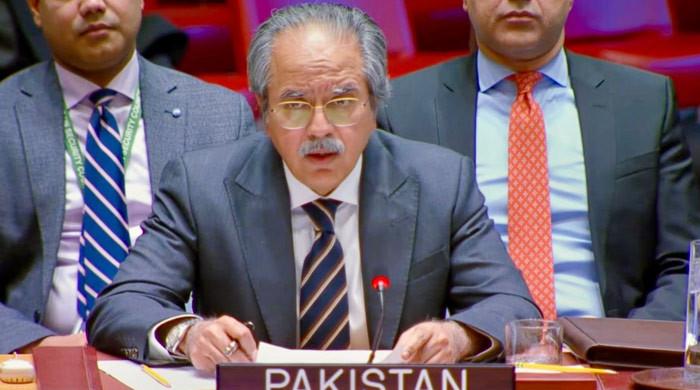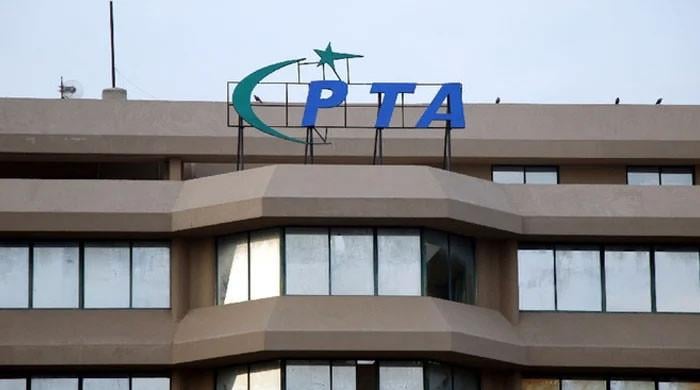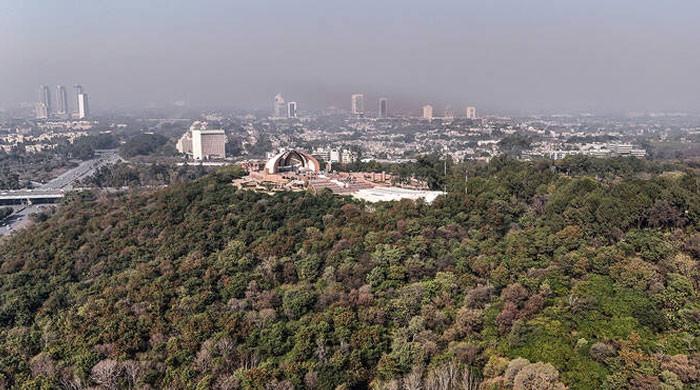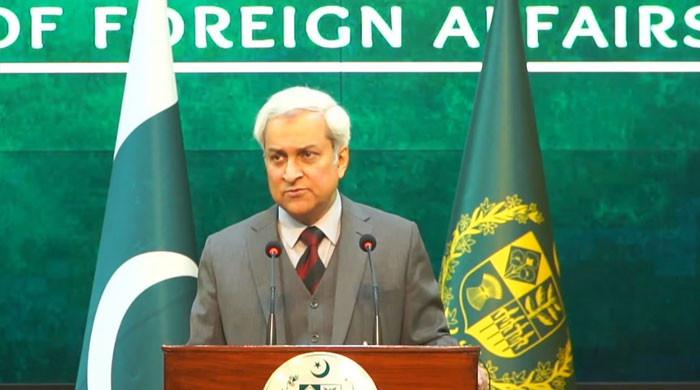IHC dismisses petition against appointment of Justice Saeed as head of Broadsheet probe committee
Chief Justice Athar Minallah, who authored the verdict, observes petitioner had objected to every bench formed to hear the case
February 12, 2021
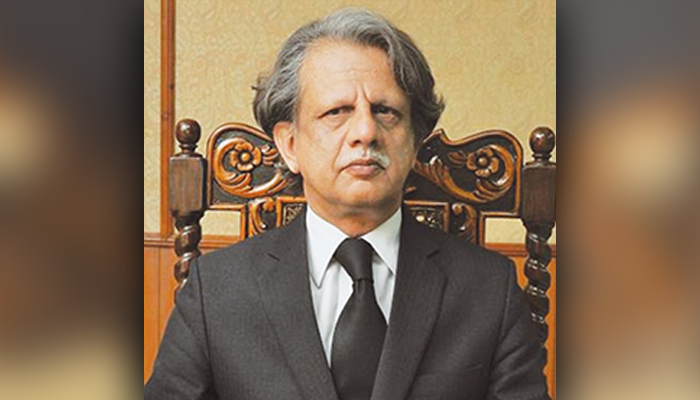
The Islamabad High Court (IHC) on Friday rejected a petition filed against the appointment of retired Justice Sheikh Azmat Saeed as the chairman of the Broadsheet Commission.
IHC Chief Justice Athar Minallah heard the petition against the appointment filed by citizen Saleemullah Khan.
The petitioner's counsel objected to the hearing by the chief justice and requested for a change of bench, to which Justice Minallah said, "Yes, you have objected to every bench."
After listening to arguments against the bench, the verdict was reserved and later pronounced.
A four-page long ruling was issued, authored by Justice Minallah.
According to the ruling, the petitioner did not give arguments despite being given an opportunity by the court, therefore the petition was dismissed as inadmissible.
The judgment said that a petition seeking a retrial after seven different judges is rejected while a petition for trial in the court of the applicant's choice is also rejected.
The petitioner had sought removal of Justice Saeed from the commission.
The petitioner had taken the stance that Justice Saeed has served as Deputy Prosecutor General in NAB, and his appointment as head of the Broadsheet Inquiry Commission is a conflict of interest.
He had also made the plea that no retired judge can be appointed to any post for two years after retirement.
PM constitutes committee
Prime Minister Imran Khan has constituted an inter-ministerial committee to probe the Broadsheet LLC scandal and tasked it to present its findings in 45 days.
Inter-ministerial committee formed to probe Broadsheet scandal: Shibli Faraz
The move followed the surfacing of an interview of Broadsheet CEO Kaveh Moussavi on YouTube in which he makes several claims regarding the firm's investigation into the assets of former prime minister Nawaz Sharif held abroad.
Faraz said that the committee will not only minutely probe the fine points of the case, it will determine "how the country's wealth was looted, and how the firm, after it made important discoveries, was approached by someone said to be Nawaz Sharif's cousin to have the family's name removed from the matter, after which the CEO said 'we don't deal with crooks'".
The information minister said that those who "made a mockery out of the state institutions, hurt the nation's wealth and dragged the country into litigation which has caused great embarrassment" will be dealt with after the committee shares its own findings "soon".
The scandal
A London court ruled that the National Accountability Bureau (NAB) knowingly ‘conspired’ to financially harm Broadsheet LLC by entering into a settlement agreement with an unauthorised individual and paid around 1.5 million dollars to his fake firm.
Broadsheet verdict: NAB paid $1.5m to a fake firm
Broadsheet was hired by National Accountability Bureau during Pervez Musharraf’s government in 1999 to trace assets in the UK and USA of more than 200 Pakistanis (called "targets" in the contract) including generals, politicians, and businessmen — Benazir Bhutto, Asif Ali Zardari and Nawaz Sharif as the chief targets.
The firm began pursuing legal action against NAB after it ended its contract in 2003 in violation of the terms and conditions. The bureau was ordered by a London court to pay for damages, liabilities and interest accrued.
In May 2008, Pakistani authorities paid around $1.5 million to Jerry James, head of a fake company, blackballing the actual one — Broadsheet LLC, an Isle of Man entity. After the ruling from the London Arbitration court, Broadsheet LLC leapt for the Quantum decision, forcing Pakistan to pay up more than $28 million in damages.
The London High Court’s Financial Division issued on December 17, 2020 a Final Third Party Order for payment to Broadsheet by December 30, 2020.
Pakistan then made a payment of $28.706 million (Rs4.59 billion) to the British firm after losing the long-running litigation at the London High Court.
But then Kaveh Moussavi's claims opened a new can of worms, prompting the government to formally investigate the matter.




